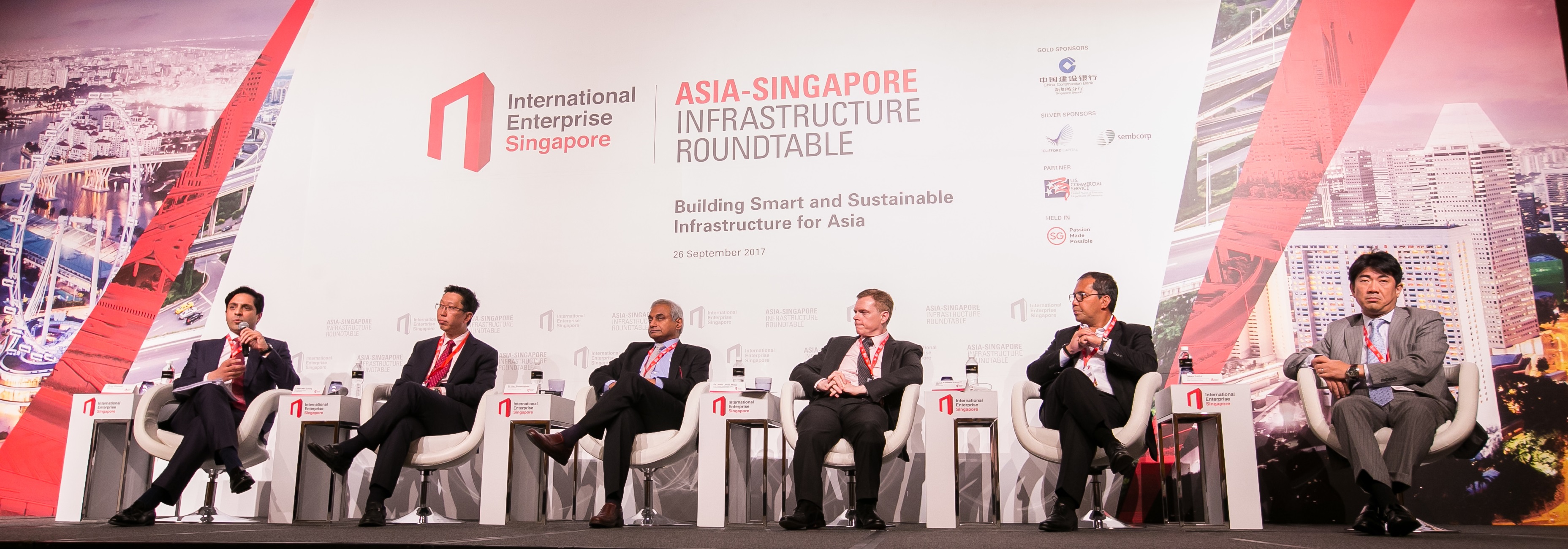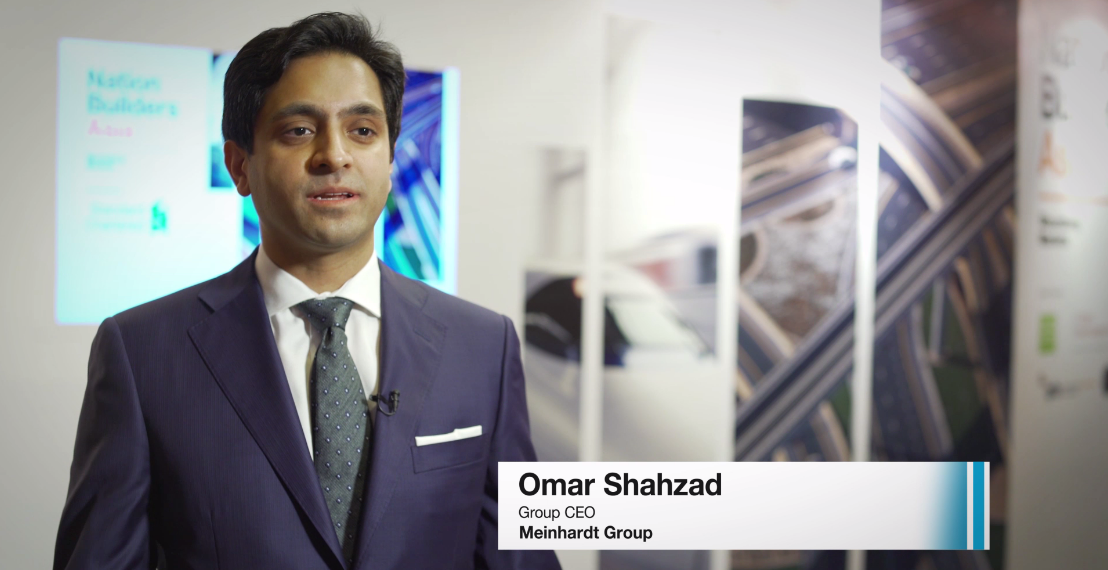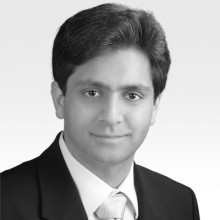Asia-Singapore Infrastructure Roundtable 2017

[L-R]: Omar Shahzad, Chief Executive Officer, Meinhardt Group, Chew Men Leong, Chief Marketing Officer, ST Engineering, Dr Hari Gunasingham, Managing Director, Eutech Cybernetic, Dr John Leslie Millar, Chief Development Officer, Ananda Development Public Co Ltd, Mohammad Ramdhan Pomanto, Mayor, Makassar City, Indonesia, Takeo Koike, Director, Office of Public-Private Partnership, Asian Development Bank
====
Omar Shahzad, Meinhardt Group Chief Executive Officer, was the moderator for a plenary on “Building Next-Gen Smart Infrastructure in Asia” at the seventh Asia-Singapore Infrastructure Roundtable organised by International Enterprise (IE) Singapore on 26 September 2017.
The plenary discussed the definition of sustainable smart infrastructure, Singapore’s role as the region’s infrastructure hub and also addressed the opportunities, challenges and upcoming trends in infrastructure development in Asia.
The event was attended by policy makers, infrastructure companies to financiers.
Some takeaways from the Roundtable:
- Singapore as Asia’s infrastructure hub and facilitating the need to minimise risks in infrastructure investments
Growing affluence and connectivity in the region is driving demand for infrastructure development. Singapore is well poised to support this demand. Our infrastructure ecosystem has matured over the years, and today, we play host to a large variety of companies – developers, financers, multi-laterals, professional services. All these stakeholders have a role to play in proper management and allocation of the risk. There is no shortage of commercial lenders to infrastructure projects if the risk can be allocated and mitigated properly.
- The emergence of smart cities and smart technologies as solutions to urban problems
Smart infrastructure technologies have paved way for cities around the world to adopt new methods in their tackling of both old and new urban issues. This has increased liveability for citizens and created better ecosystems in which businesses may thrive. While the embracing of such technologies has brought about many benefits, we will also have to address the increased vulnerabilities which individuals and organisations are exposed to, including that of cyber attacks.
- Renewable energy is often seen as the more suitable power generation solution in a distributed set-up, but financing of such projects remains a key issue to be addressed
Renewable energy is now widely deployed in countries possessing the resource, e.g. wind, solar, geothermal or hydro. However, the intermittent nature of many renewable energy sources means that distributed generations solutions will often require hybrid systems or energy storage options to be complete. In the implementation of distributed generation solutions, strong local stakeholder engagement is even more critical than for centralised systems. Formation of long-term partnerships or joint ventures is one of the ways to ensure engagement. There is also an opportunity to bring in multi-laterals to finance such projects if they are well structured right from the start.
- Financing, proper structuring to ensure bankability and technological breakthroughs are key considerations for transportation projects
The government cannot relinquish the full responsibility of large-scale transportation projects to the private sector but remain imperative in the structuring and financing of projects. When implementing cross-border transportation, some immediate considerations include the harmonisation of systems across countries and currency risks when financing parts of the project in different currencies. Technology is also playing an increasingly critical role in enhancing the security of transportation projects.



